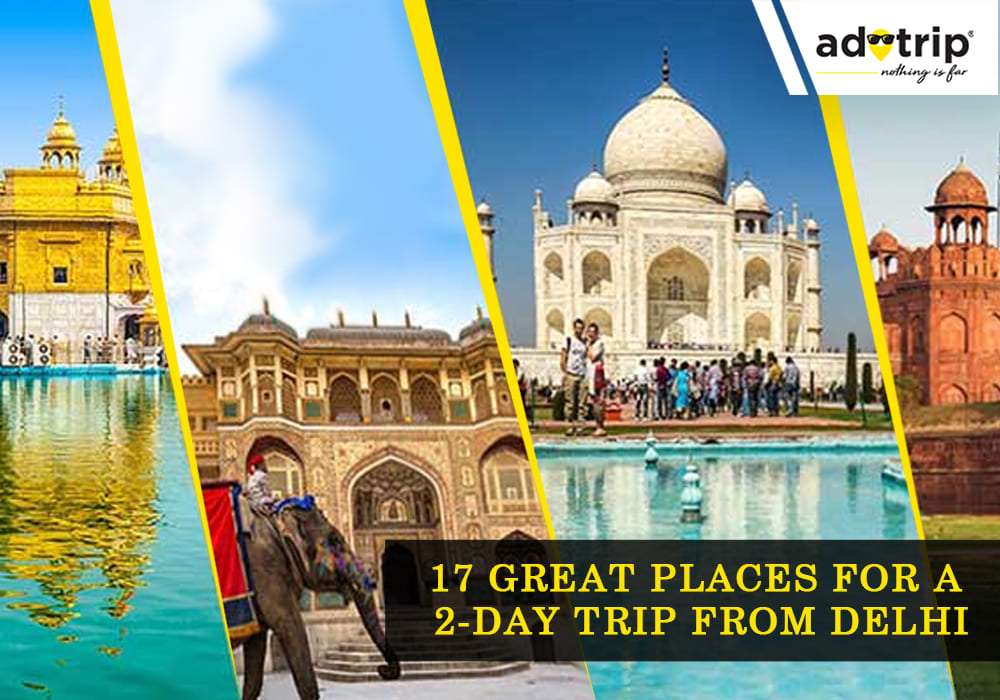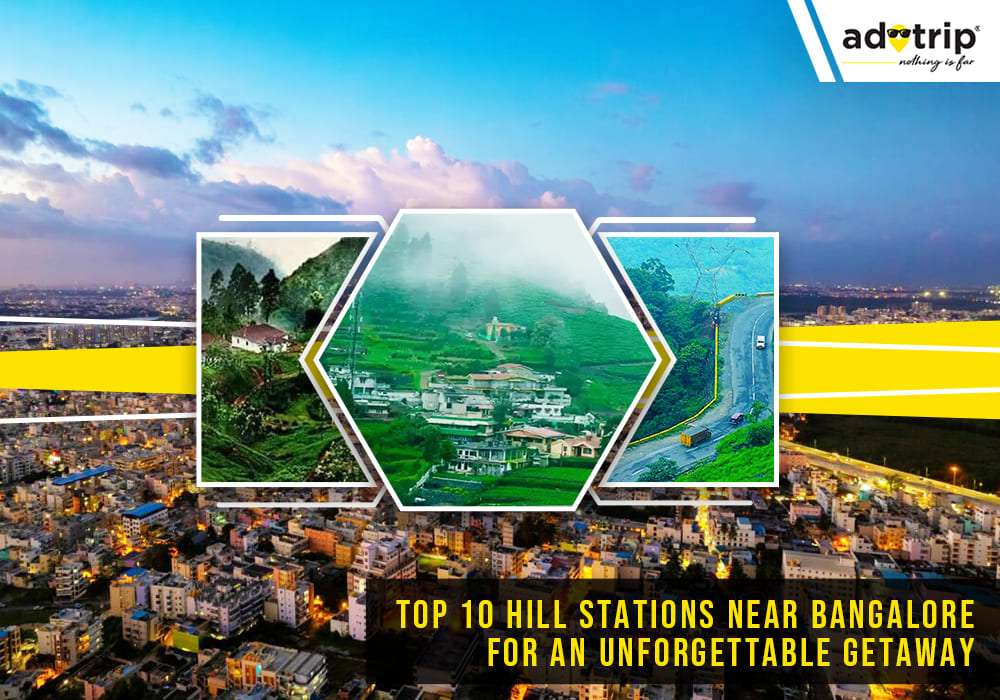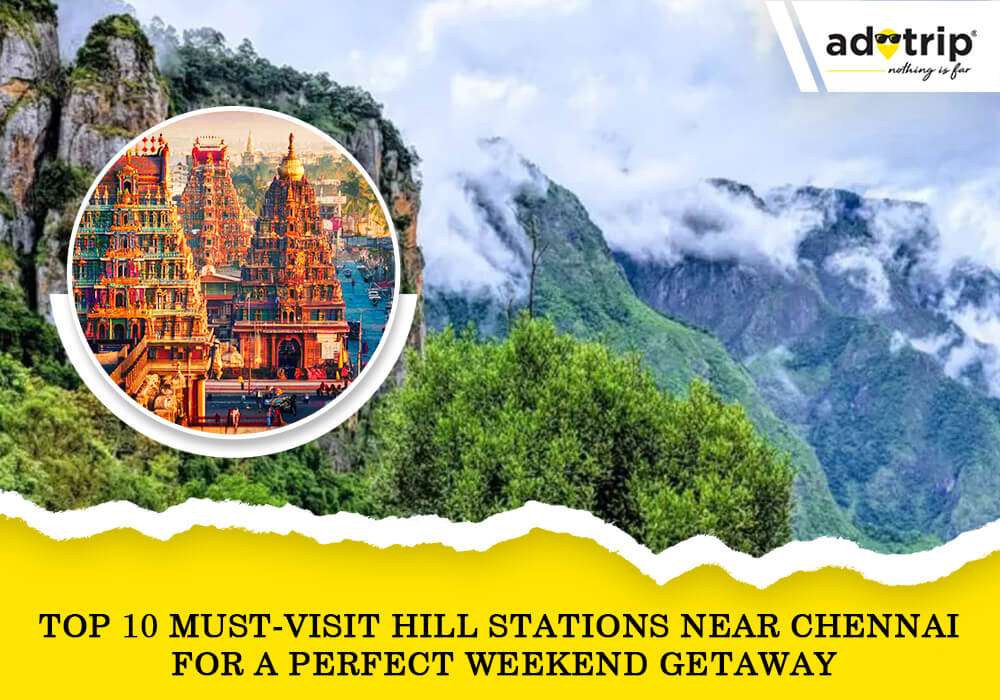
Last Updated At: 18-Jun-2024
20 Famous Festivals of Hong Kong You Must Visit in 2024
Hong Kong is like no other city in Asia. You can see the British Empire's influence, from the post boxes to the street names. But don't be fooled; this place is all about Cantonese pride. And boy, the festivals of Hong Kong can rival anywhere else on the continent! Pretty impressive, right?
Hong Kong festivals are always big and fancy, with street parades, crowded temples, and awesome traditional music and dance performances. The most crucial celebration in Hong Kong, as in many other Asian countries, is the Chinese New Year. But let me tell you, this city has some unique festivals you won't find anywhere else!
List of 20 Famous Festivals in Hong Kong 2024
Now, here's the thing - Buddhist and Taoist events follow the lunar calendar, so the dates change every year. Some of Hong Kong's biggest festivals usually happen in January or February (Chinese New Year), May, and October. If you plan to visit Hong Kong, booking your flights and accommodation well in advance is a good idea because prices tend to go through the roof during those months. Take a look at some of the most popular and must-experience festivals of Hong Kong that offer you a glimpse into its cultural heritage.
- New Year's Day - January 1
- Chinese New Year - Dates vary; typically, late January or early February
- Lantern Festival - 15th day of the first lunar month
- Cheung Chau Bun Festival - The date varies; typically in April or May
- Ching Ming Festival -April 4 or 5
- Easter -Dates vary; Good Friday to Easter Monday
- Labour Day -May 1
- Buddha's Birthday -8th day of the 4th lunar month
- Dragon Boat Festival -5th day of the 5th lunar month
- Hong Kong Special Administrative Region Establishment Day -July 1
- Hungry Ghost Festival -15th day of the 7th lunar month
- Mid-Autumn Festival -15th day of the 8th lunar month
- National Day -October 1
- Chung Yeung Festival -9th day of the 9th lunar month
- Hong Kong Wine & Dine Festival -Dates vary
- Clockenflap Music & Arts Festival -Dates vary
- Winter Solstice -December 21 or 22
- Christmas -December 25
- Boxing Day -December 26
- New Year's Eve -December 31
1. New Year's Day - January 1
As the countdown to the New Year begins, there is a buzz of excitement, anticipation and joie de vivre in the atmosphere. Hong Kong gets ready to welcome the New Year with fireworks that can be seen from Victoria Harbor Cruise, the Inca Masquerade, auspicious rituals observed in homes, special meals cooked to attract good fortune and more.
2. Chinese New Year - Dates vary; Typically, Late January or Early February
Hong Kong also celebrates the Chinese New Year, a famous festival in Hong Kong, with excitement and joy. This vibrant celebration is marked by spectacular fireworks, lion and dragon dances, colourful parades, and more. People decorate their homes with red-coloured decorations that symbolise good luck. Families get together to exchange lai see or red envelopes with money, festive meals, and visit temples to pray for good health, success, and prosperity. Shoppers throng the markets to buy traditional treats and flowers. This festival reflects a strong community spirit and rich cultural heritage as the destination ushers in the lunar new year with much hope and joy.
Read More : Things To Do In Hong Kong
3. Lantern Festival - 15th Day of the First Lunar Month
Held annually on the first full moon of the lunar month, the Chinese Lantern Festival is a famous spring festival in Hong Kong. This traditional celebration welcomes the arrival of spring. Also known as the Spring Lantern Festival, the city illuminates the streets with lights of all kinds and colours. Lighting the lantern display is a cultural event that includes cultural performances and lasts more than a week.
4. Cheung Chau Bun Festival - The Date Varies; Typically in April or May
A festival that originated in a rural Hong Kong fishing community in the 18th century, the Cheung Chau Bun Festival is now a popular annual national festival. It is held from the fourth day of the month on the fifth to the ninth day. The actual current location of the festival is Cheung Can Island, where official bun partner Kwok Kam Kee is distributing 60,000 buns for the event.
5. Ching Ming Festival -April 4 or 5
Hong Kong’s 2,500-year-old festival is the Ching Ming Festival, also known as the Sweeping Tomb Festival. This traditional Chinese holiday is now celebrated as a public holiday where people spend their time decorating the graves of their ancestors as a sign of respect. To secure ancestral relations, the Chinese offer food and grass at memorials during this time along with burning crayons for their ancestors, which is often viewed as wealth belonging to later ancestors will play a role in the afterlife
Read More : Places To Visit In Hong Kong
6. Easter - Good Friday to Easter Monday
If you are wondering what to do for Easter when in Hong Kong? Here is the answer. You can go for Easter egg hunts. Hong Kong also offers a flurry of celebrations, such as weekend markets, carnivals and traditional Easter egg hunts. Foragers can head to Tai Pak Beach for Discovery Bay’s annual egg hunt, complete with a bouncy castle feast and stable giveaway.
7. Labour Day - May 1
Around the world, Labor Day is celebrated enthusiastically, and Hong Kong is no exception. Many also call the day May Day or International Labor Day. Hong Kong celebrates this day as a public holiday. The day is associated with the beginning of spring and the workers’ festival. The day is also a public holiday in Hong Kong. Most businesses and schools throughout the city are closed on this day.
Read More : Culture Of Hong Kong
8. Buddha's Birthday -8th Day of the 4th Lunar Month
The Buddha's Birthday is generally celebrated in different ways in Hong Kong. One of the main ceremonies on this day is bathing the Buddha, where water is poured onto many small Buddha statues that symbolise the purging of the soul, spiritual purification, and the washing away of negative energy. Other everyday activities include offering prayers, making offerings, and chanting sutras in temples and monasteries, many of which one can visit throughout Hong Kong. Some will even indulge in a free meal with a diverse vegetarian taste to purify the soul and 'cleanse' the digestive tract.
Read More : Beaches In China
9. Dragon Boat Festival -5th Day of the 5th Lunar Month
On the 5th day of the 5th month of the lunar calendar, which usually falls in June, the crowds watch as teams of paddlers battle it in the dragon boat races. They paddle as fast as possible in unison to the drumbeat and try to be the first to cross the line. It's the highlight of the Dragon Boat Festival, also known as the Tuen Ng Festival, and it has been months of hard work, tears, and sweat.
Read More : Festivals Of China
10. Hong Kong Special Administrative Region Establishment Day -July 1
Hong Kong Special Administrative Region Establishment Day is celebrated in Hong Kong, China. This day marks the handover of Hong Kong from the UK to the People's Republic of China and the establishment of the Hong Kong Special Administrative Region. Fireworks, political rallies and military parades mark this day. It is a public holiday for citizens encouraged to join rallies to speak about their history and culture. This day is important to Hong Kong and its people as it celebrates the cultural and political history of the place.
11. Hungry Ghost Festival -15th Day of the 7th Lunar Month
The Hungry Ghost Festival is one of the most fun events in Hong Kong's calendar. The city is livelier than ever with its unique decorations, rituals and offerings. But if you're new here, you might wonder: what's all this for? In Chinese culture, the Hungry Ghost Festival is when people pay homage to the dead by praying and offering food. Held on the 15th night of the 7th month of the Chinese calendar – the month when the gates of hell open – the festival is also about appeasing the ghosts that roam the earth at this time. The tradition is most prevalent in East Asian countries where Taoism and Buddhism are practised.
Read More : Places To Visit In China
12. Mid-Autumn Festival -15th Day of the 8th Lunar Month
The Mid-Autumn Festival has always been one of the most important events on the Chinese calendar. Also known as the Mooncake Festival or Moon Festival, Mid-Autumn is celebrated on the 15th day of the 8th lunar month — the full moon day. The date changes yearly because of the difference between the lunar and Gregorian calendars. In 2024, Mid-Autumn will be celebrated on 17 September. This festival observes many customs. Chinese people traditionally give thanks to the moon and for the harvest of the crops. It's also the time to pray for good luck and moon gazing. Most importantly, mid-autumn is when families get together to celebrate.
13. National Day -October 1
Every October 1st, Hong Kong celebrates National Day. This day marks the founding of the People's Republic of China in 1949. People of Hong Kong, Macau and Mainland China commemorate the day with great joy and enthusiasm. These celebrations began in Hong Kong in 1997 when the territory was handed over from British hands to China. The festivities include various activities, such as Flag-Raising Ceremonies and Parades. Still, the main show stealer is, without a doubt, the magnificent fireworks display in Victoria Harbour, which returns in 2023 after a five-year hiatus. The National Day holiday is a favourite of the Chinese when they enjoy a "Golden Week" of days off and a wide array of celebratory events.
14. Chung Yeung Festival -9th Day of the 9th Lunar Month
Embracing the festival's roots, it has become a cherished tradition to embark on hiking excursions or scale mountain peaks during this time. The pleasant autumn climate provides an ideal backdrop for outdoor adventures, and ascending to higher ground is symbolic. For Hong Kong and Macau, the Chung Yeung festival is also marked by visits to ancestral graves. Families often make a day of it, tidying up the gravesites and leaving food offerings. With many burial grounds and cemeteries situated on hills, this practice is also seen as a form of mountain climbing. Furthermore, some individuals fly kites on Chung Yeung, believing this can dispel bad luck and carry it far away from the kite's owner. However, retrieving abandoned kites from the ground is considered inauspicious, as they are believed to hold an ominous significance.
Read More : Culture Of China
15. Hong Kong Wine & Dine Festival -Dates vary
The Hong Kong Wine & Dine Festival usually takes place on different dates. Not only does the Hong Kong Wine & Dine Festival offer lovely food options, but this venue also promises to entertain guests in many different ways, making the celebration memorable. This could include enchanting live music performances which set the right mood – especially if there is no other sound; immersive cultural exhibits are available to explore various vibrant wine and food customs from different countries. This enables the festival to cater for all sorts of tastes through its variety.
16. Clockenflap Music & Arts Festival -Dates vary
For visitors from around and away, Clockenflap, the number one music and arts event in Hong Kong, provides a unique opportunity to soak in its cultural gems. This festival takes place annually in November and is famous for bringing together artists from different parts of the world who belong in this category, ranging from indie rock singers to rap stars and having visual arts combined with interactive displays. This guide gives an idea concerning the historical progress, including the most exciting moments people should look forward to while attending Clockenflap.
Read More : Singapore VS Hong Kong
17. Winter Solstice -December 21 or 22
The Winter Solstice is a festival to be with one's family when they join up for a traditional ceremonial dinner. A festival for a family reunion is a moment to reflect upon coexistence because it includes special foods like tangyuan to express reunion and prosperity. During the Winter Solstice, people go to temples for prayer; they hope for good fortune and health. Winter Solstice is one of the most essential cultural fiestas, with meaningful content about family ties and well-being.
18. Christmas -December 25
Hong Kong has maintained a rich tapestry of customs during the Christmas period. So people embrace such values as exchanging gifts and cards, among others. There is also the aspect of decorating houses using festive materials as families get closer during Christmas parties and events. On the other hand, religious functions and visits to fun fairs are other forms of celebrating Christmas as a united nation. In Hong Kong, celebrations are not limited to specific days because celebrations continue up to January 6th.
Read more : Facts About China
19. Boxing Day -December 26
Although the origin of Boxing Day can be traced back to ancient times and is practised around the world, mixing them into something unique happened nowhere else in Hong Kong. So Christmas night is the perfect time to spend all that money you've saved shopping and buying everything at low prices! Not only do families reunite for wonderful dinners during this special day but also exchange gifts with each other as a way of expressing love among themselves during the festive season; others still take part in charitable activities inside their communities within this period as it signifies giving back in return for what has been given through these acts sometimes such assistance may involve giving away food.
Read More : Hong Kong Trip Quotes And Captions For Instagram
20. New Year's Eve -December 31
New Year's Eve in Hong Kong is celebrated with excitement and enthusiasm. Crowds gather to watch fireworks lighting up the sky over Victoria Harbour. Loud chantings of grand countdowns can be heard from afar. It is fun watching people coming together to welcome the New Year. One can see a happy atmosphere all around, and restaurants go out to provide excellent food services. Street performers also help to enhance the whole experience by providing entertainment like lively music and jokes, making everyone laugh together as a big family.
The festivals of Hong Kong 2024 are replete with unique activities – ranging from beguiling dragon dances adorning Chinese New Year parades to breathtaking lantern displays showing forth at the Mid-Autumn Festival and the festive Cheung Chau Bun Festival. But apart from this native culture, famous world-class festivals are held there.
Adotrip offers comprehensive travel guides, hassle-free flight and hotel bookings, and personalised itineraries to maximise your trip. These allow you to seamlessly explore Hong Kong's rich festival landscape with ease and expertise.
With us, nothing is far!
Book Hongkong Tour Package
To make the most of your Hong Kong festival experience, why not plan your trip through Adotrip.com? Unlock exclusive deals on flights, hotels and curated packages. Book your unforgettable Hong Kong festival adventure with us today for convenient and hassle-free trip planning!
Frequently Asked Questions Related to Festivals in Hong Kong
Q. Which are the major festivals in Hong Kong, and when are they celebrated?
- New Year's Day - January 1
- Chinese New Year - Dates vary; typically, late January or early February
- Lantern Festival - 15th day of the first lunar month
- Cheung Chau Bun Festival - The date varies; typically in April or May
- Ching Ming Festival -April 4 or 5
- Easter -Dates vary; Good Friday to Easter Monday
- Labour Day -May 1
- Buddha's Birthday -8th day of the 4th lunar month
- Dragon Boat Festival -5th day of the 5th lunar month
- Hong Kong Special Administrative Region Establishment Day -July 1
- Hungry Ghost Festival -15th day of the 7th lunar month
- Mid-Autumn Festival -15th day of the 8th lunar month
- National Day -October 1
- Chung Yeung Festival -9th day of the 9th lunar month
- Hong Kong Wine & Dine Festival -Dates vary
- Clockenflap Music & Arts Festival -Dates vary
- Winter Solstice -December 21 or 22
- Christmas -December 25
- Boxing Day -December 26
- New Year's Eve -December 31
Q. Which is the most prominent festival in Hong Kong?
A. The Chinese New Year is a famous festival in Hong Kong, celebrated with excitement and joy. This vibrant celebration is marked by spectacular fireworks, lion and dragon dances, colourful parades, and more. People decorate their homes with red decorations that symbolise good luck. Families get together to exchange lai see or red envelopes with money and festive meals and visit temples to pray for good health, success, and prosperity.
Q. Which festival is celebrated in Hong Kong in Autumn?
A. The Mid-Autumn Festival has always been one of the most important events on the Chinese calendar. Also known as the Mooncake Festival or Moon Festival, Mid-Autumn is celebrated on the 15th day of the 8th lunar month — the full moon day. The date changes yearly because of the difference between the lunar and Gregorian calendars. In 2024, Mid-Autumn will be celebrated on 17 September.
Q. Which is the biggest holiday in Hong Kong?
A. Chinese New Year is one of the biggest festivals in Hong Kong. During this festival, the people of Hong Kong enjoy a 3-day holiday during which they enjoy watching dance performances, visiting friends and family, and exchanging gifts with them.
Q. What is the significance of the Hungry Ghost Festival?
A. The Hungry Ghost Festival is one of the most fun events in Hong Kong's calendar. The city is livelier than ever with its unique decorations, rituals and offerings. But if you're new here, you might wonder: what's all this for? In Chinese culture, the Hungry Ghost Festival is when people pay homage to the dead by praying and offering food.
--- Published By Arpita Mathur
Latest Blogs

17 Best Places for 2 Days Trip from Delhi

Top 10 Hill Stations Near Bangalore for an Unforgettable Get...

Top 10 Hill Stations Near Chennai For a Perfect Getaway

10 Best Hill Station Getaways Near Gurgaon for Peace Seekers

10 Astonishing Underwater Temples of India You Must Visit in...
Speak to our experts
Popular Flights
Kolkata to Ahmedabad Flights
Chennai to Lucknow Flights
Kolkata to Jaipur Flights
Thiruvananthapuram to Chennai Flights
Nagpur to Coimbatore Flights
Vadodara to Hyderabad Flights
Delhi to Bhubaneswar Flights
Delhi to Bangalore Flights
Varanasi to Pune Flights
Amritsar to Thiruvananthapuram Flights


 (1).png)
 Dubai
Dubai Malaysia
Malaysia USA
USA






